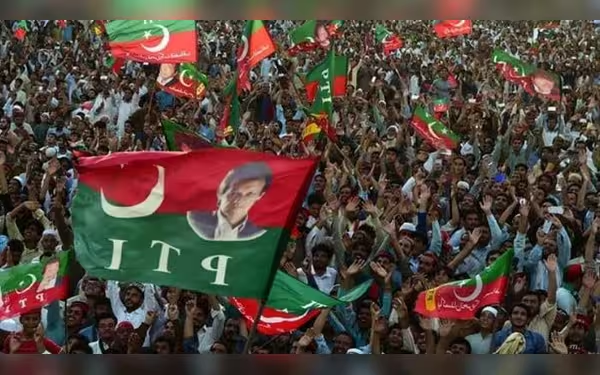Thursday, December 5, 2024 02:12 AM
PTI Protests Continue Until Goals Are Achieved
- PTI vows to persist with protests in Islamabad.
- Key leaders convene to strategize political actions.
- Protests aim to pressure government for accountability.
 Image Credits: thenews.com.pk
Image Credits: thenews.com.pkPTI continues protests in Islamabad, demanding accountability and political representation amid ongoing political turmoil.
The political landscape in Pakistan has been increasingly tumultuous, particularly since the ousting of former Prime Minister Imran Khan. His party, the Pakistan Tehreek-e-Insaf (PTI), has been vocal about its discontent with the current government. Recently, key figures from PTI, including parliamentarians from Punjab and Khyber Pakhtunkhwa, convened to discuss the ongoing political situation. This meeting underscored the party's commitment to its objectives and its determination to mobilize supporters for a significant protest.
During the discussions, the leadership of PTI made it clear that they intend to continue their protests until their goals are achieved. They have instructed party workers to ensure their presence at D-Chowk in the federal capital, Islamabad, at all costs. This location has become a symbolic site for political demonstrations in Pakistan, often serving as a focal point for public dissent and political rallies.
PTI's strategy appears to be aimed at galvanizing public support and drawing attention to their grievances against the current administration. The party believes that sustained protests will pressure the government to address their demands. This approach is not new in Pakistan's political history, where protests have often been used as a tool to influence government policies and decisions.
As the situation unfolds, it is essential for citizens to stay informed about the developments. The political climate can change rapidly, and understanding the motivations behind such protests can provide valuable insights into the future of governance in Pakistan. While protests can be a means of expressing dissent, they also highlight the need for dialogue and resolution in a democratic society.
PTI's vow to continue protests until their objectives are met reflects a broader struggle for political representation and accountability in Pakistan. As citizens, it is crucial to engage with these issues thoughtfully, recognizing the importance of peaceful discourse in shaping the nation's future.













